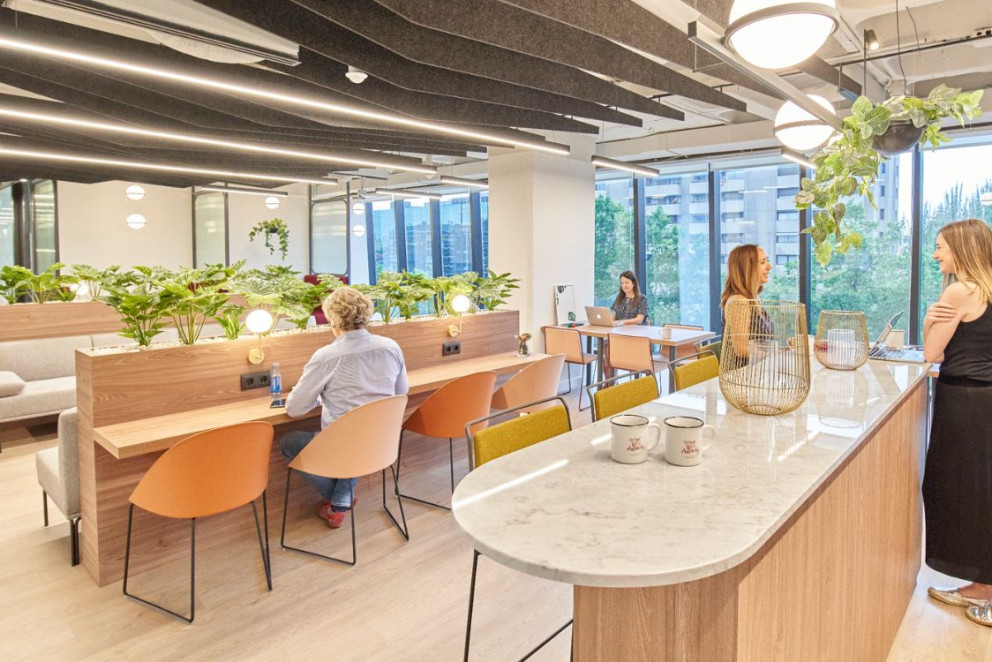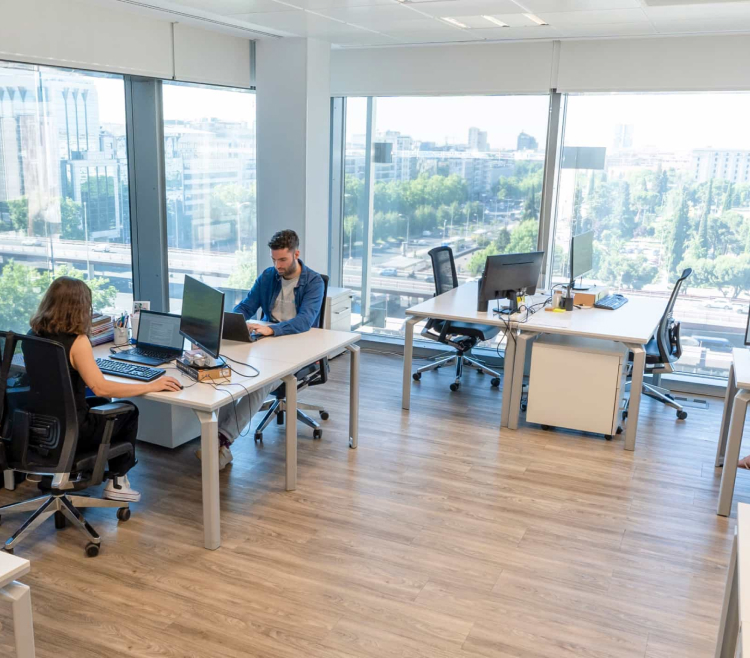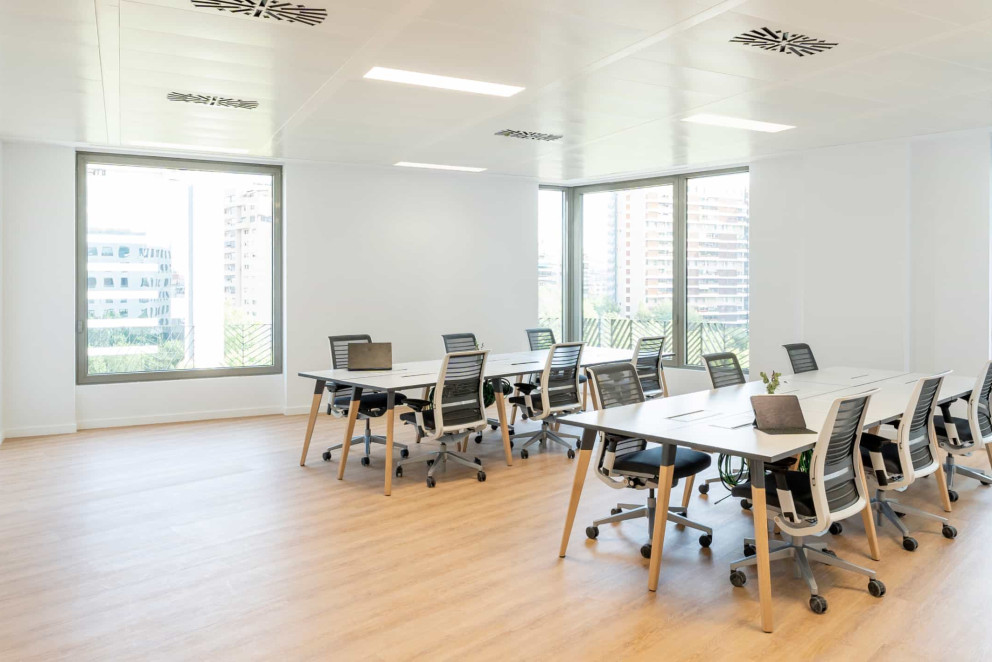Table of contents




Table of contents
We've heard it many times already, but we'll repeat it as many times as necessary: flexibility and efficiency are key to business success. That's why an increasing number of companies are choosing flexible workspace services to rent their offices or meeting rooms, avoiding the long-term commitments of conventional office leases. However, to fully leverage their benefits, effective financial management is crucial. Today, we want our #LexingtonMagazine to teach you how to understand the accounting of meeting room rentals and what steps you should consider. And even though it's not an easy challenge, from proper expense categorization to resource optimization, we will explain the best practices that will allow you to maintain precise control of these elements in your budget. Pay attention!
Yes, the rental of a meeting room can be accounted for as a deductible expense in the Corporate Income Tax, considering it part of your company's business operations. Here are some important points to consider when accounting for it:
If you are considering renting the best meeting room in Madrid to meet with your clients, don't miss out on the options offered by Lexington in the best locations.
We understand that the tax landscape is complex, so it's crucial for you to understand which expenses are deductible to maximize your company's tax benefits. Here are some categories:
The type of contract chosen can have significant implications in various aspects, from financial management to compliance with specific accounting regulations. Let's explore the relevance of the type of contract, focusing on key issues such as the application of the International Financial Reporting Standards (IFRS) 16 and the different types of lessees.
The International Financial Reporting Standard 16 (IFRS 16) has introduced substantial changes in how companies should account for leases. It is crucial to determine whether a contract contains a lease under the terms of IFRS 16, as this can have significant implications on the presentation of financial statements and the assessment of the company's financial performance.
Lessees can be classified into different categories based on their needs and business objectives. Understanding these types of lessees is essential for selecting the most appropriate lease agreement and for complying with corresponding accounting obligations. From operational lessees to financial lessees, each type has specific implications in terms of accounting treatment, impact on the balance sheet, and risk management.
You might be interested
You might be interested
What you do need to start a business in Spain?

María Abraín


You might be interested
You might be interested
Coworking: team well-being and cost optimization

David Vega


You might be interested
You might be interested
How to write the financial plan for your business: the basic guide!

María Abraín


You might be interested
You might be interested
Private offices in Madrid


You might be interested
You might be interested
Private offices in Barcelona


Understanding how to account for meeting room and coworking expenses involves careful consideration of the types of benefiting companies, proper allocation in account 62, and the effective use of specific subaccounts. Does it sound like Chinese to you? Let us explain briefly:
Startups, emerging businesses, large corporations? It doesn't matter; all of them can find significant benefits in renting meeting rooms and coworking spaces. Each type of company can optimize the cost of these flexible spaces, thus maximizing operational efficiency.
Account 621 in the accounting plan is designated for leases and, therefore, is the key accounting category for recording expenses related to the rental of meeting rooms and coworking spaces.
👉🏼 BONUS TRACK: The most valuable advice we can offer is to have a brief conversation with the advisory service to determine the specific needs of accounting information. The role of accounting experts goes beyond just filing tax returns; it involves providing relevant and timely accounting information that enhances decision-making in any type of business. So, when in doubt, don't hesitate to seek the assistance needed for your significant decisions! And if you aim to be a comprehensive entrepreneur, don't forget the importance of having legal advice for any concerns.
Written by

She is the most methodical animal lover ever in Lexington! We are positive that our Chief Accounting Officer is the best in everything she does. There is nothing out there she would overlook or leave out of her balance sheet! We all envy her organizational methods, honestly. Her good mornings are our daily dose of motivation!
Related articles
Get up to date with flex
Subscribe to our newsletter to make sure you don't miss anything. On trend content you’ll be interested in.
Contact us
Request information
Solicitar información free pass
Request a quote
Visit our spaces
Trabaja con nosotros
Contact us
Work in a flexible space.
Optimize on costs compared to a conventional office
Estimation of costs compared to conventional office hire
0 people Office for
Select
5 people
10 people
15 people
25 people
Select a number of people and we’ll show you the expenses included in our flexible office hire.
Conventional office
Operational costs and supply costs:
€/month
+ opening expenses
Flexible office
Operational costs and supply costs:
Included
No opening expenses
Included in the monthly bill
€517.01/person
0€
2.264,24 €/person
0€
523,69 €/person
0€
Guarantee bond
6 months
Deposit
2 months
Since
12 months
Since
1 month
2-6 months
2 months
Request a quote